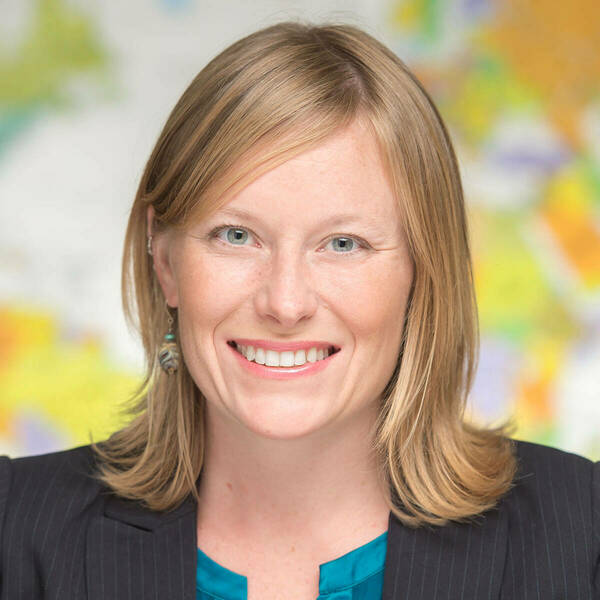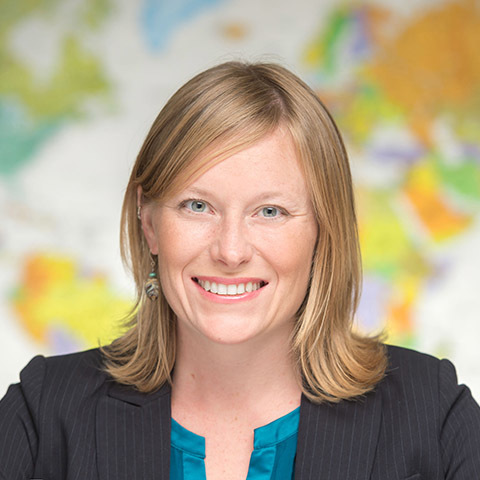

Danice Guzmán, associate director of the Pulte Institute for Global Development’s Evidence and Learning Division, presented at the inaugural meeting of the Nita M. Lowey Middle East Partnership For Peace Act (MEPPA) Partnership for Peace Fund (PPF) Advisory Board on Wednesday, April 13.
Passed by Congress with bipartisan support in 2020, MEPPA seeks to advance peaceful co-existence between Israelis and Palestinians. Implemented by the U.S. Agency for International Development (USAID) and the Development Finance Corporation (DFC), MEPPA will implement programming of up to $250 million over five years — the largest investment that any government has made for people-to-people peacebuilding in the region.
The meeting was opened by USAID Administrator Samantha Power, who stated that the board is “more important than ever” as the Agency seeks to build bold programming that recognizes and emphasizes our shared humanity.
Guzmán was one of two external presenters addressing the 15-member Board, which includes development experts, private sector and faith-based leaders, all appointed by Congress. Her presentation focused on a retrospective evaluation of people-to-people activities in Israel and the West Bank conducted as part of USAID’s Expanding the Reach of Impact Evaluation (ERIE) mechanism in 2019. The study was led by Guzmán and her Pulte Institute colleagues Lila Khatiwada, senior research associate, and Tom Purekal, director of innovation and practice.
Guzmán presented a series of recommendations based on the evaluation findings, including:
- Encourage programming that supports re-entry, sustained communication, and encourages participation from both sides;
- Focus on metrics and impact measurement, establishing common indicators that utilize resources to capture both narrative and statistical analysis in real time (e.g. social media); and
- Prepare for and fund future evaluations by engaging with evaluation experts to build evaluation into programming from the beginning.
Guzmán closed her presentation with a call for preparing for impact measurement of the work of the fund. She asked the board members to think about how they will define success in five years.
“How will you measure success? If you invest funding in evaluation and research partners from the start, I assure you that you will have better evidence of impact, and better learnings on what worked and what didn’t, later down the line.”
Board members also received a presentation on peacebuilding from Lucy Kurtzer-Ellenbogen, Director of the United States Institute for Peace Israeli-Palestinian Conflict Program.
Following the presentations, members were given an opportunity to provide initial recommendations on potential programming priorities for the PPF. Key members of the advisory board, including former USAID Administrator Mark Green, echoed Guzmán’s call for rigorous evaluation in the region.
The PPF will administer the People-to-People Partnership for Peace Fund Grants Activity, which funds grants of up to $5 million each to organizations that promote greater understanding, mutual trust, and cooperation between Israelis and Palestinians. Three awards have been funded under the activity: two focusing on private sector engagement and another on water security in the region. The PPF board will make recommendations to the USAID Administrator about the types of projects that should be considered for funding. Twelve of the 15 board members have been appointed by Congress.
More details about the meeting can be found online, with a full transcript coming soon.
Originally published by at pulte.nd.edu on April 27, 2022.